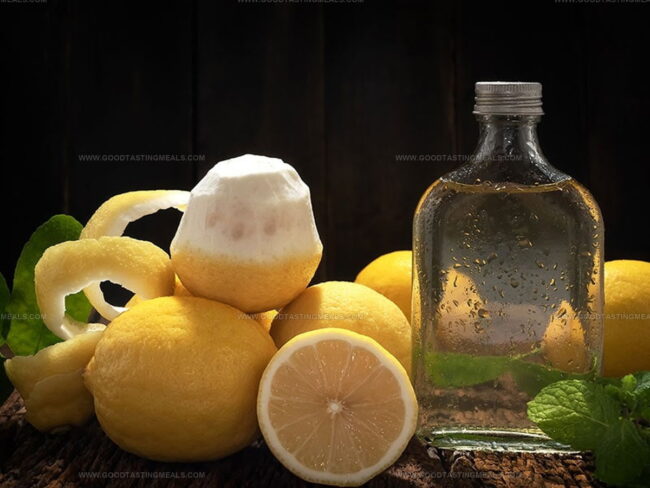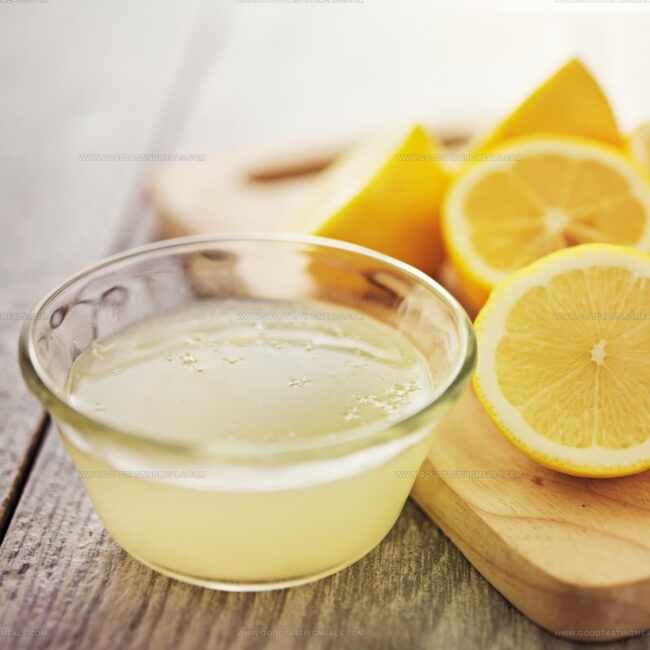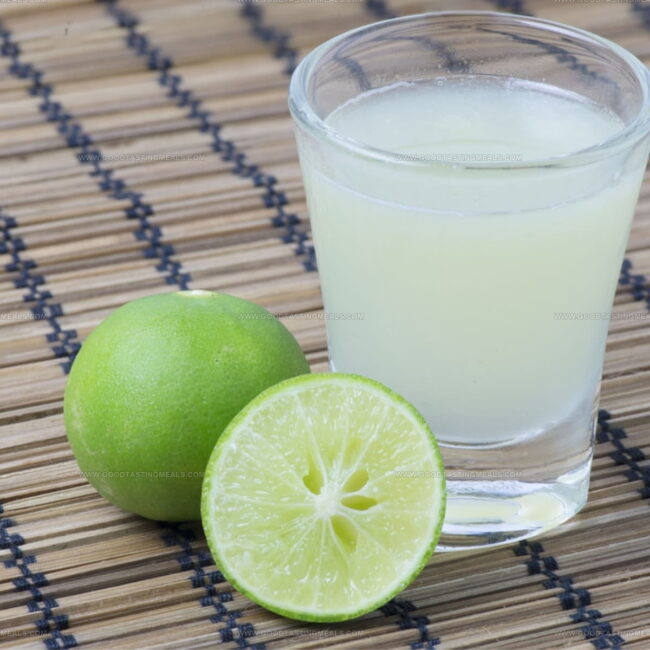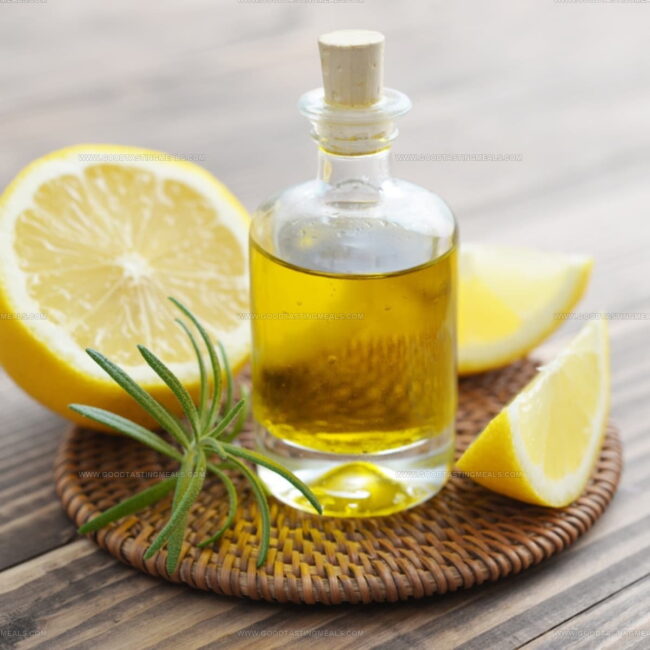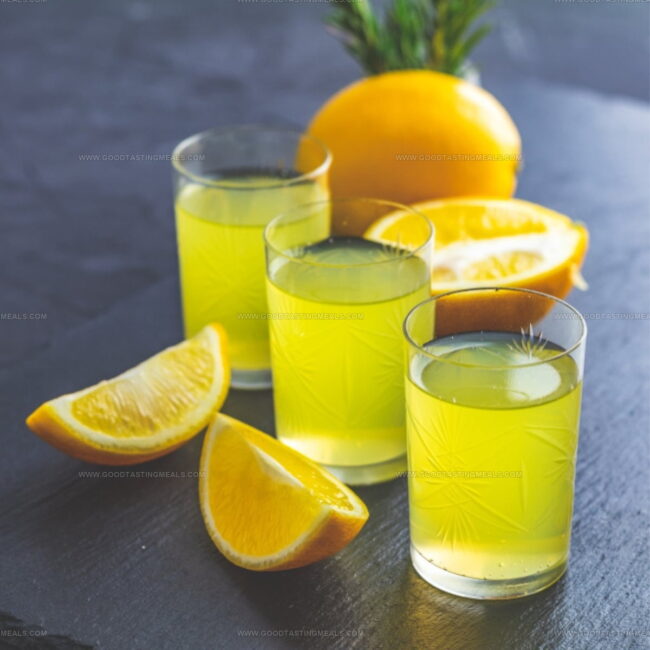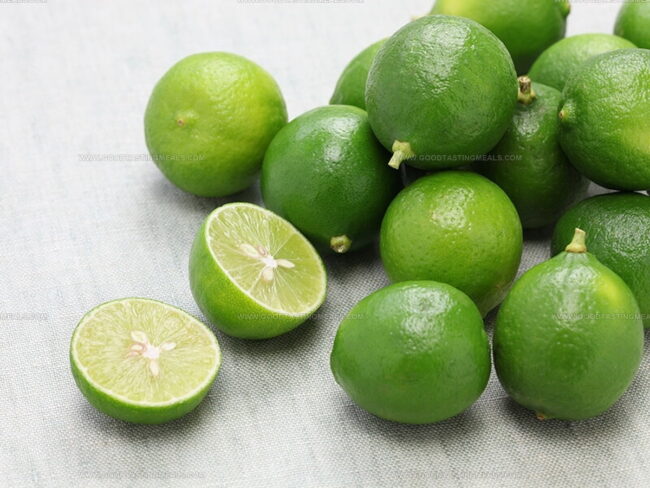7 Tangy Alternatives: Citrus Swaps for Lemon Extract
Lemon extract provides a concentrated burst of citrus aroma and flavor, perfect for baked goods and desserts.
When lemon extract is missing, alternatives like fresh lemon zest, lemon juice, or even orange extract can impart similar brightness with varying intensity.
Some substitutes may introduce a different citrus note, so balancing flavors is essential.
These seven best lemon extract substitutes help maintain that fresh, zesty character in your recipes.
Understanding the nuances of each option ensures your desserts stay fragrant and flavorful.
Whether baking cakes or making frostings, these alternatives keep your citrus accents shining.
Explore how to replace lemon extract seamlessly for delicious results.
What Makes Lemon Extract So Unique?
Pure lemon extract brings intense citrus flavor with just a drop. It captures the true essence of lemon peel without extra acidity.
I love how it lifts both sweet and savory recipes alike. You get all the tangy brightness without adding more liquid or sugar.
Many bakers trust it to highlight lemon notes in cakes and cookies. It can also be added to dressings or marinades for an easy flavor boost.
Choosing The Best Lemon Extract Substitutes
Lemon extract brings bright, citrusy notes. Without it, you can still add zest and freshness. It’s about keeping the flavor lively.
Lemon Zest
Substituting lemon zest for extract gives bakers a more natural flavor since zest comes directly from the fruit's peel.
The essential oils in fresh zest create a stronger aroma and more intense lemony taste than bottled extracts ever could.
Many recipes benefit from the tiny yellow specks that add visual appeal and texture to cakes, cookies, and frostings.
Zest works wonderfully in both sweet and savory dishes, from lemon bars to pasta, without the slight alcohol taste that extracts sometimes leave behind.
For best results, about one tablespoon of finely grated zest can replace one teaspoon of extract in most recipes.
Lemon Juice
Lemon juice is an excellent substitute for lemon extract, delivering a fresh citrus kick that enlivens many recipes without artificial additives.
This natural alternative not only adds brightness to dishes but also boosts your immune system and helps with digestion through its high vitamin C content.
For best results, one tablespoon of fresh juice equals about half a teaspoon of extract, though you may need to adjust sugar slightly to balance the tartness.
At home, simply squeeze a medium lemon to yield about three tablespoons of juice, or keep some bottled versions in your refrigerator for convenience.
Regular lemons work perfectly fine, but Meyer lemons offer a sweeter option if you can find them at your local market.
Lemon Essence or Flavoring
Lemon essence is an excellent replacement for lemon extract, delivering a similar concentrated citrus punch in your baking and cooking projects.
This artificial alternative contains specially formulated compounds that closely mimic the distinctive tang of fresh lemons, making it hard to tell the difference in most recipes.
While purists might notice that lemon essence lacks some of the natural complexity found in true extract, most people won't detect any significant difference in the final dish.
The proportions remain the same when substituting – simply use an equal amount of essence as the extract called for in your recipe.
For those concerned about alcohol content, lemon essence offers an advantage since it typically contains less alcohol than traditional extracts.
Lime Juice or Zest
Substituting lime juice or zest for lemon extract gives your recipes that essential citrusy kick without compromising flavor.
These readily available alternatives add tangy freshness to desserts, sauces, and marinades when lemon extract isn't on hand.
The juice offers similar acidity while the zest packs concentrated aromatic oils that truly enhance your culinary creations.
Many chefs actually prefer this swap because it introduces natural flavor rather than the sometimes artificial taste of extracts.
For best results, lime zest works better in baked goods while the juice shines in dressings and drinks where its distinctive character can truly come through.
Orange Zest and Juice
Substituting orange juice or zest for lemon extract adds a delightful citrusy twist to your recipes with just a hint of sweetness.
The tangy flavor works wonderfully in desserts, marinades, and dressings, creating a refreshing alternative that many people actually prefer.
Orange zest contains potent aromatic oils that can enhance your dishes with intense citrus notes without adding extra liquid to the recipe.
Many professional chefs recommend using a combination of both juice and zest for the most complete flavor profile when replacing lemon extract.
Just keep in mind that oranges naturally contain less acidity than lemons, so your final dish might taste slightly sweeter and less tart than the original recipe intended.
Lemon Oil
Lemon oil makes a fantastic substitute for lemon extract, packing an intense citrus punch from the concentrated essence of lemon rinds.
Most chefs prefer it because just a few drops deliver the same bright flavor that would require several teaspoons of extract.
The oil captures both the aromatic qualities and zesty taste profile that recipes call for, making your baked goods and desserts pop with authentic lemon character.
You should remember that oils are generally more potent than extracts, so using about 1/4 teaspoon of oil can replace a full teaspoon of extract in most recipes.
This natural alternative also tends to have fewer additives than some commercial extracts, giving your dishes a cleaner flavor profile.
Limoncello
Limoncello, that sunny Italian liqueur crafted from lemon zest, sugar, and alcohol, works perfectly when you need a replacement for lemon extract in your cooking.
The rich citrus flavor brings an authentic Mediterranean touch to desserts and cocktails without the sometimes artificial taste of commercial extracts.
Most home cooks appreciate how this bright yellow drink adds depth to cakes, frostings, and sauces while providing a subtle boozy note that regular extract lacks.
For best results, just use about twice the amount of limoncello as the recipe calls for extract since the alcohol content differs.
My friends who bake professionally swear by this swap, especially in summertime recipes when that fresh lemon character really shines through.
How To Balance Acidity and Aroma When Swapping Lemon Extract
When swapping lemon extract, getting the right zing and scent comes down to these simple tweaks:
How to Avoid Mistake When Substituting Lemon Extract
Extract strength varies by brand, so start with a small amount and taste before adding more.
Liquid substitutes add moisture, so reduce other fluids to maintain the right consistency.
Zest brings natural oils and aroma that extracts lack, helping capture fresh lemon notes.
Sweetness levels differ among substitutes, so adjust sugar or honey slowly to match the desired taste.
Acid sources aren’t identical, so add vinegar or citrus juice sparingly to avoid over-tang.
Alcohol-based extracts can affect recipes, so cut back on other alcohol or let mixtures rest before serving.

